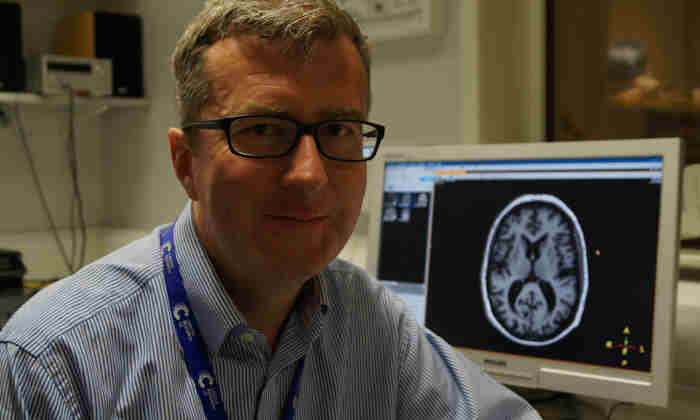University to lead Cancer Research UK programme
24 Aug 2016
Manchester scientists get £1.47million funding boost for lung cancer research

The University is to lead a £1.47million Cancer Research UK programme to bring major advances in lung cancer treatments – the North West’s most common cancer.
A team of scientists led by Dr James O’Connor will use the cash injection to look at how imaging techniques can be used to improve treatment plans for lung cancer patients.
The Manchester team will work to develop new ways to use imaging techniques like magnetic resonance imaging (MRI) to better understand how lung cancer tumours respond to treatment. The information they gather could then be used to evaluate new therapies and in the future, might help doctors select the right treatment for each patient.
Every year around 46,400 people are diagnosed with lung cancer in the UK, including around 3,600 people in Greater Manchester, Lancashire and South Cumbria
The research will look at non-small cell lung cancer – which makes up around 85 per cent of lung cancers in the UK.
Dr O’Connor said: “We hope this research will transform the way we use scans to monitor how patients respond to new therapies.
“It’s an exciting area where we are aiming to combine drugs that harness the body’s immune system with well-established treatments like radiotherapy, and at the same time, create tests to identify which patients would benefit from these drugs.
“It builds on earlier research but we will be applying it to lung cancer specifically.”
The research will be done in laboratories, with the hope of running clinical trials with patients to test these techniques within three to four years.
Dr O’Connor is one of only two scientists in the country this year to win the Cancer Research UK Advanced Clinician Scientist Fellowship award – aimed at supporting clinicians working in areas spanning basic and translational research.
Cancer is one of The University of Manchester’s research beacons - examples of pioneering discoveries, interdisciplinary collaboration and cross-sector partnerships that are tackling some of the biggest questions facing the planet.
